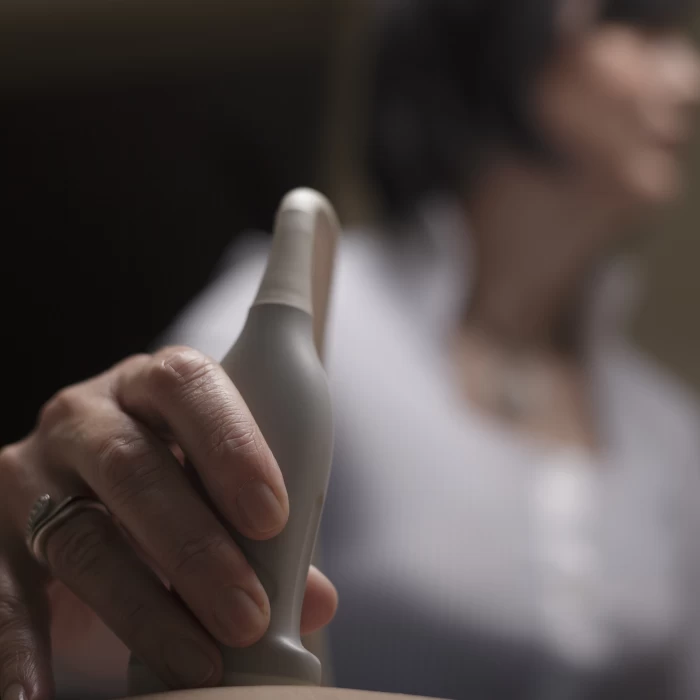There are two types of examination belonging to radiology: ultrasound and x-ray tests. The ultrasound exam is a diagnostic procedure that is gentle and puts no strain on the patient, while it can discover internal, endocrine, urological, gynecological, and joint and circulatory problems, even before symptoms develop.
In what cases should you turn to a radiologist?
Breast cancer screening:
- over 30: if there are complaints, if the family history is positive or after giving birth between
- 35 and 40: basic examination
- over 40: annually
- over 65: every two years (or yearly, if the family history is positive or if hormones are being taken)
Newborn screenings: hip screening (at six weeks), skull ultrasound (can be performed until the age of 6 months, while the fontanel is open), abdominal ultrasound
Lung screening (chest x-ray): this exam is no longer recommended as a screening test, so we only perform it if it is required by the employer (or other entity).
Other radiological exams are best performed based on a doctor’s recommendation, as a specialist is able to decide whether the given symptoms show it to be necessary, and if so, which imaging test.
Radiologic examinations available at our clinic:
- Mammography and ultrasound breast exam, which we carry out together in our office, as the two examinations supplement rather than replace each other, allowing us to get the most thorough test result
- Abdominal ultrasound exam (for infants, children and adults): liver, kidneys, pancreas, gallbladder, ovaries, appendix examination
- Blood vessels (neck, limbs) ultrasound exam: exam for diagnosing atherosclerosis, thrombosis
- Ultrasound exam of the renal artery
- Ultrasound exam of the thyroid
- Ultrasound exam of the testicles
- For newborns: hip, skull and abdominal ultrasound
- X-rays: for infants, children, and adults
Our related doctors
Any questions before booking an appointment?
If you are unsure which doctor to see or what examination you require, we are here to help!
Simply request a free callback from one of our colleagues, who will help you find the right specialist based on your specific issue.








Reviews